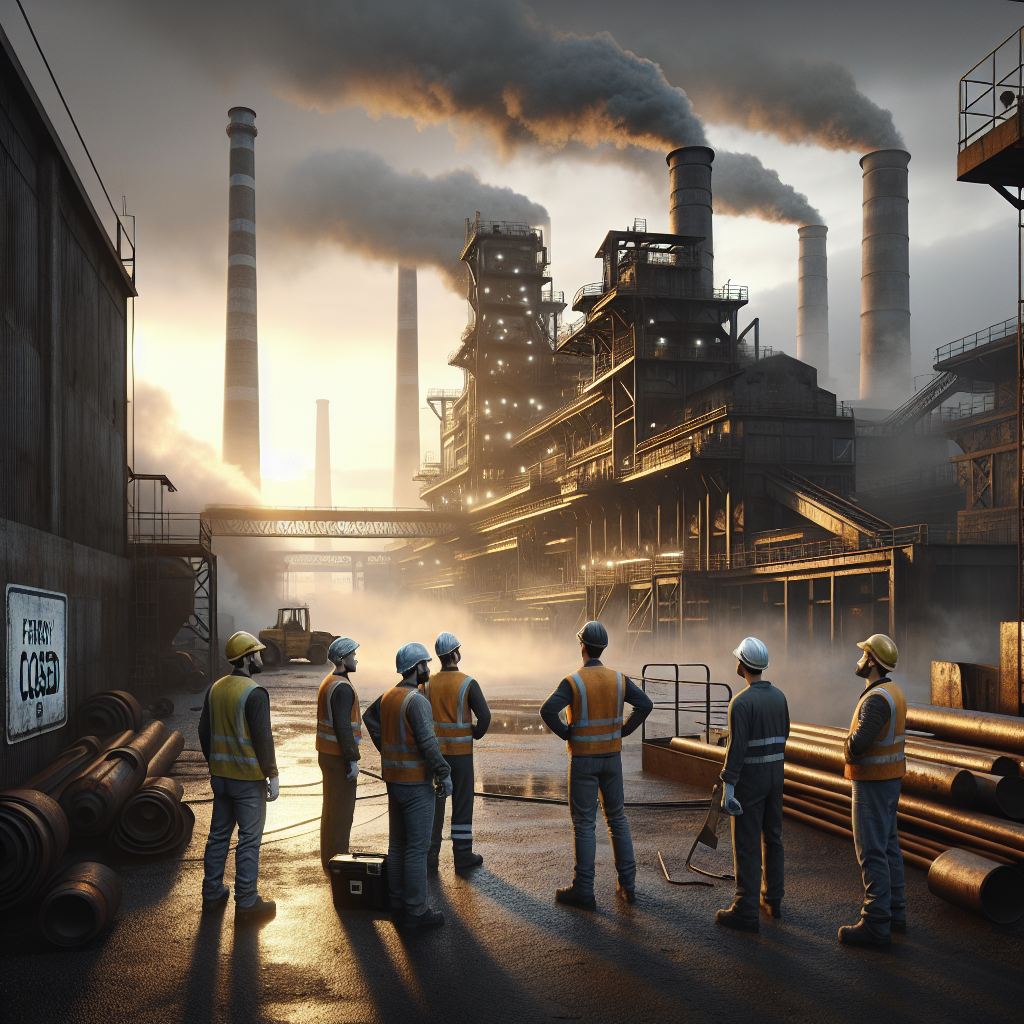Listen to this post: British Steel Closures Threaten 2,700 UK Jobs
British Steel Closures Threaten 2,700 UK Jobs
Summary
British Steel has announced a major restructuring plan that could dramatically reshape the UK’s steel manufacturing landscape. According to the company, it intends to shut down the blast furnaces at its Scunthorpe site, a decision that would put around 2,700 jobs at risk. The firm’s strategy involves transitioning to electric arc furnace (EAF) technology, aiming to cut emissions and align with the UK’s wider net-zero climate targets.
This proposed transition comes amid mounting pressure from environmental mandates and energy costs, pushing traditional industries toward cleaner, more sustainable processes. However, such a transformation is not without its downside—most notably, the potential job loss in regions where manufacturing forms the economic backbone.
The Scunthorpe plant closure is central to this shift. British Steel, owned by Jingye Group of China, plans to replace the old blast furnaces with modern electric arc furnaces. Unlike traditional methods that rely on iron ore and coke, EAFs mainly recycle scrap metal, producing substantially fewer carbon emissions. But this leap forward in green steelmaking also brings labor uncertainty.
Workers, unions, and local leaders have voiced deep concern, saying the move may devastate local economies and leave skilled laborers without viable alternatives. Government officials are exploring financial aid packages and strategic partnerships to mitigate the damage, but an official resolution is yet to be finalized.
This announcement underlines a crucial balancing act between sustainability and employment—a dilemma shaping the future of heavy industries in Britain and around the world.
Analysis
Electric arc furnaces are undoubtedly the future of sustainable steel manufacturing. They emit significantly less CO₂ and rely heavily on scrap recycling, aligning with the UK government’s ambitious net-zero emissions vision. However, this revolution comes with substantial socio-economic trade-offs, especially in traditional manufacturing strongholds like Scunthorpe.
Industry experts suggest that the shift to green steel is inevitable but must be handled with a worker-first approach. The job losses—potentially affecting up to 2,700 workers—could trigger a domino effect on regional economies, small businesses, and support services heavily reliant on steel industry operations.
It’s a bitter pill to swallow. Sustainable change must not come at the cost of people’s livelihoods.
Charlotte Childs, GMB Union National Officer
So why is this change happening now? The answer lies in a combination of environmental regulations, global competition, and economic viability. Traditional blast furnaces are no longer cost-effective, especially when China, India, and continental Europe are accelerating their own transitions toward greener technologies.
The British government is reportedly negotiating with British Steel, pushing for a £300 million support package that could ease the burden of transformation while cushioning the blow for affected communities. It’s a high-stakes balancing act between environmental responsibility and economic resilience.
Looking ahead, we may see more such transitions across the UK’s heavy industries. Tata Steel’s Port Talbot plant is also facing a similar green retrofit, making it clear that this is just the beginning of a sector-wide metamorphosis.
Here’s what to watch in the coming months:
- Final decision on government financial support for British Steel
- Potential retraining and reskilling programs for affected workers
- Supply chain impacts, including changes in raw material sourcing
- Momentum toward a circular economy via metal recycling
The big question remains: can the nation walk the tightrope of greener industry without sacrificing its skilled workforce?














